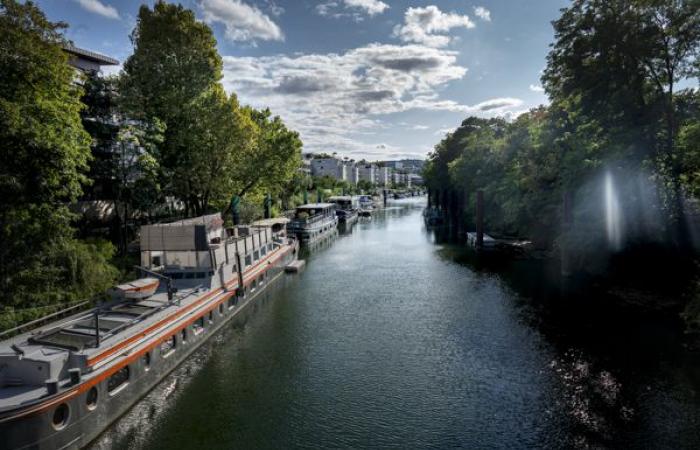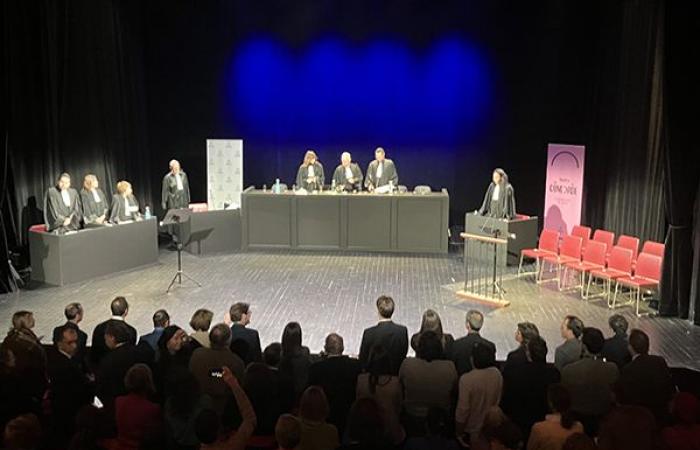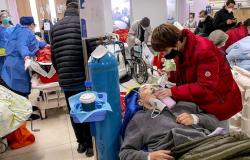During a conference organized on January 7, 2025 at the Ile-de-France regional council, the La Seine en Partage association will bring together experts and practitioners in water and river management. At a time when global warming and the diversification of uses further increase the need for resolute and concerted actions.
The future of the Seine, a vital common good, will be at the center of concerns on January 7, during the symposium La Seine et ses tributaires – l'eau de vie, organized by La Seine en shared, which will be held at the regional council of 'Ile-de-France. The event will bring together a wide range of experts from the sector, who will discuss issues related to water quality, its management, its uses and the governance of the river and its tributaries.
The Seine, west of Paris. © Jgp
James Cheron, vice-president of the Ile-de-France region, responsible for high schools and educational success, mayor of Montereau-Fault-Yonne and president of La Seine en Partage and its tributaries, will discuss the actions taken to improve the water quality and will highlight the importance of cooperation between regional, metropolitan and national stakeholders.
A first round table will focus on cooperation between the multiple stakeholders in water management, echoing the winning bet of the 2024 Olympic and Paralympic Games. François-Marie Didier, president of Siaap (Interdepartmental Union for Sanitation of the Paris metropolitan area), will detail the progress made in improving the quality of the Seine over the past 70 years. The question of the fragility of rivers, subject to natural and human hazards, will also be addressed. “Also note the intervention of Vincent Rocher, director of innovation at Siaap, who will present his work The Seine and the progress of sanitation in the Ile-de-France region from 1875 to 2050,” underlines Jordi Delepine, general delegate of La Seine en sharing.
Isabelle Derville, decarbonization and environment advisor at the Interministerial Delegation for the Development of the Seine Valley (DIDVS), will emphasize the importance of planning actions carried out to preserve this vital resource. She will insist on the need for joint involvement, while analyzing the issues linked to global warming.
The economic and industrial dimension will also be at the heart of the debates, with the intervention of Dominique Ritz, deputy general director of Haropa Port, who will detail the challenges of river navigation on the Seine and the efforts implemented to maintain the quality of water, particularly within the framework of the JOP 2024. Pascal Guihot, from EDF, will present the dependence of electricity production on water, recalling the challenges linked to drought and the measures implemented. placed by the energy company to adapt the installations to climate change.
Water uses and future prospects
A second round table will highlight the multiple uses of water – domestic, industrial, agricultural and urban – and will question the interactions between these different actors. Soraya Baït, architect and town planner, representing the Regional Council of the Order of Architects of Ile-de-France (Croaif), will analyze the integration of water management into town planning. She will discuss the importance of thinking about the absorption of water by urban spaces, like projects such as the Matra river city, and will underline the need to develop a local water culture.
Jérémy Le Bonhomme, general manager of the shipchandler Neptunia, will speak to discuss the challenges of river logistics, which emit four times less carbon than road logistics. He will also return to the governance of the Seine, which can complicate the coexistence of uses.
Governance and financing of water tomorrow
Finally, a third round table will look at water governance and financing, emphasizing mechanisms for sharing responsibilities and financing. Stéphanie Peigney-Couderc, deputy territorial director of Voies navigables de France (VNF), will explain the role of the public establishment and the impact of global warming on its activities. It will describe the tensions between sometimes antagonistic uses. Marine Calmet, president of Wild Legal, will speak on the legal recognition of the personality of the river.
On the evening of December 9, the Théâtre de la Concorde was transformed into a courtroom for the holding of a fictitious trial. With an underlying question: what if the river had legal personality and could defend its rights in court? © Jgp
Nicolas Portier, president of the Circle for Territorial Planning, will describe the legal and political issues of water resource management, in particular through the completion of the transfer of water and sanitation skills from municipalities to intermunicipalities. Finally, Elsa Lagarde, from Sepia Conseil, will present the challenges of rainwater management and innovations in boat sanitation, based on a new study.







